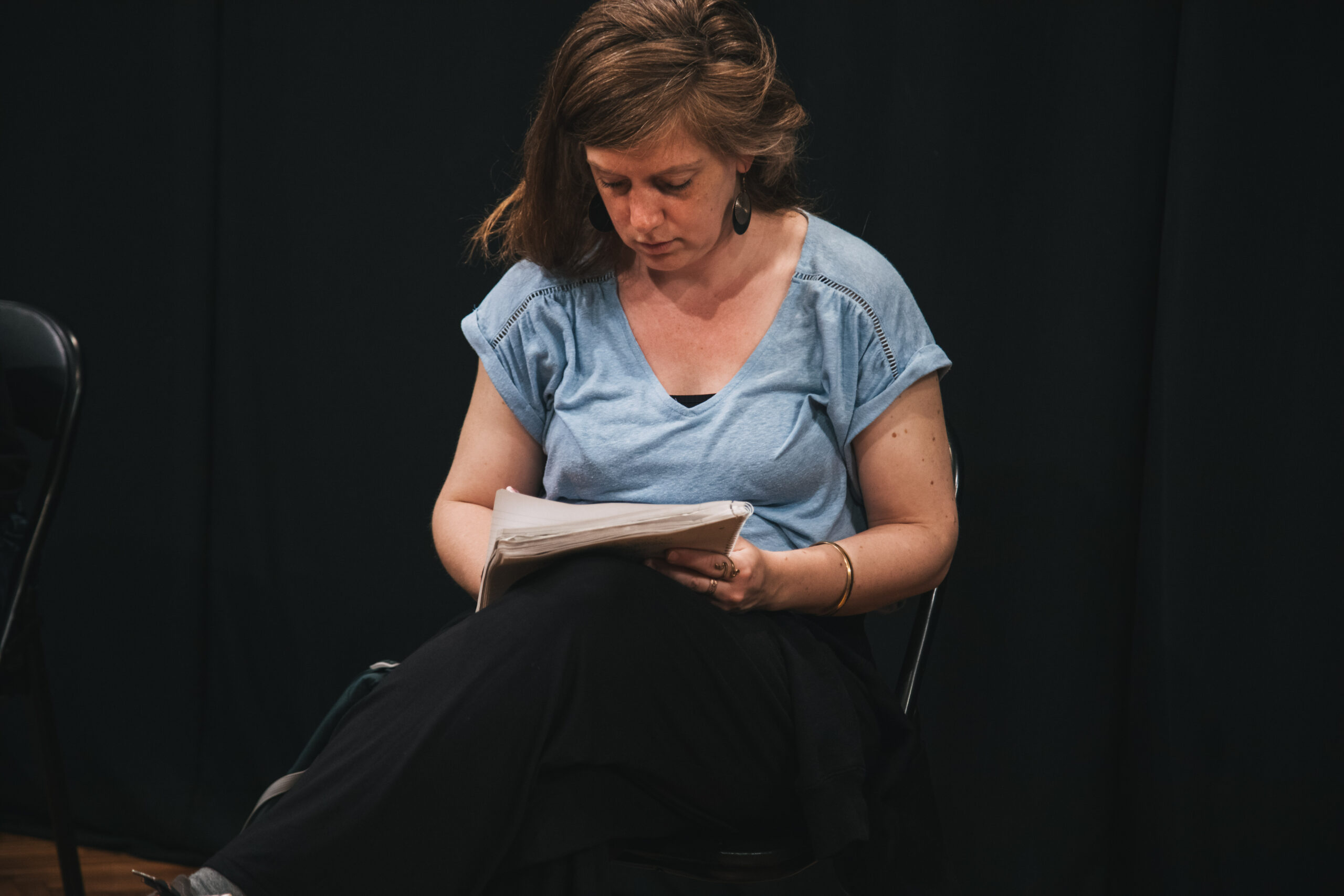Handbook
Strategy of implementation of methodologies was created after the Exchange of methodologies workshop, which took place in June 2023 in Belgrade, with the participation of all partners. The handbook describes the core methodologies which are to be used during the work on a co-production.

Justlab
The Paradox of Justice – European Laboratory theatre Co-production. Strategy of implementation of methodologies.
The laboratory concept of all partners refers to the possibilities and uniqueness of the theatre as a medium. Research into the sense of theatre goes back to its roots in ritual, when it had a higher purpose for the community, and explores how to recreate this power nowadays. Paraphrasing Jerzy Grotowski, if we strip theatre to its essence by eliminating elements of other arts (text, music, décor) we will come to the relation between an actor and a spectator. The project Paradox of Justice wants to contribute to the research in theatre methodology which aims to deepen this relation, to make it more meaningful and truthful.
The idea is to develop the craft of theatre making within a laboratory approach, by merging the three different methodologies of the three partners, which were developed within decades of dedicated work in theatre, thus having very concrete specificities. The result should be a single comprehensive methodology, a wide and systematic approach to know-how in theatre, which is in a strong correlation with contemporary society and the perception of a contemporary spectator.
Methodology of Composing of Theatre
As authentic innovation of the three partners, the Methodology of composing of theatre refers to the composing of vocal, textual, physical and instrumental elements created by the actors into a single theatrical act, using the principles of composing which are similar to those of musical composition. In this kind of composition, rhythm, dynamic and sensual experiences are more important for the perception of the spectator then the line of a story or narrative. The strategy of implementation is to first apply these principles in the individual part of work of each partner, followed by an exchange with the other partners during the work. The biggest part of implementation will then take place in the finalization of the performance, where the material of all three partners will be put together and composed by three directors, working in synergy. The idea is to create a kind of theatrical symphony, consisting of smaller thematic elements…
The methodology of directing and montage relies on principles of the Theatre of Metaphysics (“The Theatre and Its Double”, Antonin Artaud) which makes it possible to put all of these versatile elements together, in a cohesive piece. The aim is to provoke questions in the spectator by addressing different senses and awakening the irrational part of their perception, through unusual and unpredictable images and happenings on the stage, which follow an inner, secret logic coming from the performance, rather than a linear narrative.
The proposed theatrical methodology is the most suitable for achieving the project’s objectives because in its roots it cherishes diversity and respects differences; it engages all senses of the spectator and it provokes questions. It is unconventional and therefore inviting to all spectators, no matter of their background, education or social standard. From the experience of the project partners, disadvantaged groups, which are one of the targeted audience groups of the co-production, react particularly well to the proposed methodology, because of its openness.
Joint strategic approach to the performance theme
The idea for the co-production theme came out of the necessity of all partners to react to the constant increase of violence in the world, most visible in the rise of right-wing ideologies, in relation towards migrants, women and different groups of minorities, in reckless destruction of nature and abuse of its resources. Currently in Europe, we are witnessing the brutality of war. Homo Sapiens is the only species that destroys other species without there being any need (such as the one resulting from the struggle for survival) and has its own destruction in its behavioral repertoire. But do we and could we “know better”? Throughout the history of mankind, human beings have been in search of a just organization of society, in which the rights and responsibilities of its members would be in harmony.
The idea of Justice has always been equal to what is right, equal to cosmic harmony. It represents the moral action of humans, which is what defines a human being, opposite to all other living creatures. Justice is a kind of intuitive obsession of humans, no matter how one sees it. But exactly these different visions of justice take us further away from harmony. Is our urge to dominate, as a consequence of our existential fear, something that will always bring us to a different understanding of justice, making ‘just being’ a reason for violence, instead of the base for harmony? We’ve got more rights than ever before in history, but, consequently, we must ask ourselves: what are our responsibilities? Each partner will contribute to the theme of the performance from a specific aspect, which is most of their interest.
